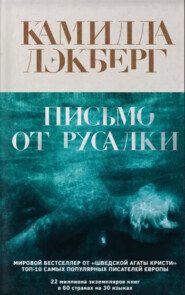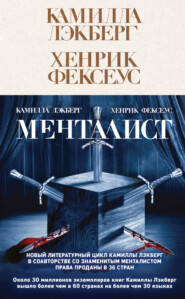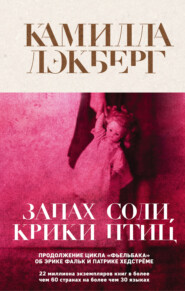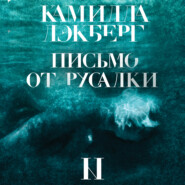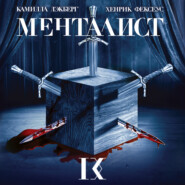По всем вопросам обращайтесь на: info@litportal.ru
(©) 2003-2024.
✖
Buried Angels
Настройки чтения
Размер шрифта
Высота строк
Поля
‘What do you mean by quiet?’ Johanna stared at her. ‘This is the most hectic time of the whole year, with drunks and everything else.’
‘I mean that we don’t have any big investigation in progress. The usual summer break-ins, et cetera – I can handle those in my sleep. And I don’t need to go driving around. I can stay at the station and take care of the paperwork. So quit fussing. I’m pregnant, not sick.’
‘We’ll see how things go,’ said Mellberg. ‘But you’re right about one thing. It’s actually nice and quiet at the moment.’
It was their wedding anniversary, and Gösta had brought fresh flowers to put on Maj-Britt’s grave, just as he did every year. Otherwise he wasn’t very good about tending to the grave, but that had nothing to do with his feelings for Maj-Britt. They’d had many happy years together, and not a day went by that he didn’t miss her. Of course he had grown used to his life as a widower, and his days were so regimented that sometimes it felt like a distant dream when he thought about how he’d once shared the small house with someone else. But the fact that he’d got used to life alone didn’t mean that he liked it.
He squatted down and touched the letters etched into the headstone, spelling out the name of their little boy. There were no photos of him. They’d thought that they had all the time in the world to take pictures of him, and it hadn’t occurred to them to take any photos right after the birth. And when he died, no pictures were taken. That just wasn’t done. He understood that they handled things differently these days, but back then a person was supposed to forget and move on.
Have another child as soon as you can. That was the advice they were given as they left the hospital in shock. But that was not to be. The only child they’d ever had was the girl. The lass, as they called her. Maybe they ought to have done more to keep her, but their grief was still too great, and they didn’t think they’d be able to give her what she needed, except for a brief time.
It was Maj-Britt who had finally made the decision. He had tentatively suggested that they should take care of the girl, that she should be allowed to stay. Maj-Britt had replied: ‘She needs siblings.’ And so the little girl had disappeared. They never spoke of her afterwards, but Gösta hadn’t been able to forget her. If he had a one-krona coin for every time he’d thought about her since then, he’d be a wealthy man today.
Gösta got up. He’d pulled out a few weeds that had sprouted up, and the bouquet of flowers looked lovely in the vase. He could hear Maj-Britt’s voice so clearly in his mind: ‘Oh, Gösta, what nonsense. Wasting such gorgeous flowers on me.’ She had never believed that she deserved anything out of the ordinary, and he wished that he had thrown caution to the wind and spoiled her more often. Given her flowers when she could actually enjoy them. Now he could only hope that she was up there somewhere, looking down, and that the beautiful flowers made her happy.
FJÄLLBACKA 1919 (#ulink_2f8a463b-fc70-5ae9-a26b-50bcd3247a29)
The Sjölins were having another party. Dagmar was grateful for every occasion that they celebrated with a party. She needed the extra income, and it was marvellous to have the chance to see up close all those rich and beautiful people. They lived such wonderful and carefree lives. They ate good food and drank copiously, they danced, sang, and laughed until dawn. She wished that her own life was like that, but so far she would have to settle for waiting on those more fortunate, basking in their presence for a short while.
This party seemed to be something special. Early in the morning she and the other staff had been taken over to an island off Fjällbacka, and all day long boats had shuttled back and forth, bringing food, wine, and guests.
‘Dagmar! You need to fetch more wine from the root cellar!’ shouted Mrs Sjölin, the doctor’s wife. Dagmar hurried off.
She was anxious to stay on good terms with Mrs Sjölin. The last thing she wanted was for the woman to start keeping an eye on her. If that happened, Mrs Sjölin would soon notice the glances and affectionate pinches her husband kept giving Dagmar during their parties. Sometimes he went even further, if his wife excused herself and retired to her room. By then the rest of the revellers would be too drunk or preoccupied with their own merriment to care about anything else going on around them. After those occasions, the doctor would slip Dagmar a little extra when the wages were handed out.
Quickly she plucked up four bottles of wine and dashed back up the steps with them. She was hugging them close to her chest when she ran right into somebody, and the bottles fell to the ground. Two of them broke, and Dagmar realized with anguish that the cost would most likely be deducted from her wages. Tears began rolling down her cheeks as she stared at the man in front of her.
‘Forgive me!’ he said, but the Danish words he spoke sounded strange.
Her distress swiftly turned to anger.
‘What do you think you’re doing? Don’t you know you can’t stand in front of a door like that?’
‘Forgive me,’ he repeated. ‘Ich verstehe nicht,’ he said in German.
Suddenly Dagmar knew who he was. She had collided with the evening’s guest of honour, the German hero, the pilot who had fought bravely during the war. But after Germany’s stinging defeat, he had been making his living by flying in air shows. Everyone had been whispering about him all day. He’d apparently made a home for himself in Copenhagen, but it was rumoured that some scandal had now forced him to come to Sweden.
Dagmar stared at him. He was the most handsome man she’d ever seen. He didn’t seem to be as drunk as many of the other guests, and his gaze was unwavering as he looked into her eyes. For a long moment they stood there, staring at each other. Dagmar lifted her chin. She knew she was beautiful. She’d had this confirmed so many times by men who ran their hands over her body and panted words in her ear. But never before had she been so pleased with her own beauty.
Without taking his eyes off her, the pilot bent down and began picking up shards of glass from the broken bottles. Carefully he carried them over to a little grove of trees and tossed them to the ground. Then he set his finger to his lips, stepped into the root cellar and brought out two more bottles. Dagmar smiled gratefully as she went over to take the bottles from him. She happened to glance down at his hands and discovered that he was bleeding from a cut on his left index finger.
She gestured to show that she wanted to have a look at his hand, so he set the bottles on the ground. It was not a deep cut, but it was bleeding heavily. With her eyes fixed on his, she put his finger in her mouth and gently sucked away the blood. His eyes widened, and she saw the familiar look as they glazed over. She moved away and picked up the bottles. As she turned and walked back to the guests, she could feel his eyes following her.
Chapter Five (#ulink_72608a34-7aa4-5d65-8b0a-abc7a7f042d1)
Patrik had gathered his colleagues to discuss the case. It was important that Mellberg be brought up to date. He cleared his throat. ‘You weren’t here over the weekend, Bertil, so I’m wondering whether you heard about what happened.’
‘No, tell me,’ demanded Mellberg, looking at Patrik.
‘On Saturday there was a fire out at the summer camp on Valö. There are indications that it was started deliberately.’
‘Arson?’
‘We haven’t had it confirmed yet. We’re waiting for the report from Torbjörn,’ said Patrik. He hesitated for a moment before going on. ‘But there’s enough evidence to indicate that we should keep working on the case.’
Patrik pointed to Gösta, who was standing at the whiteboard, holding a marker in his hand.
‘Gösta has taken out the files on the family that disappeared on Valö. He—’ Patrik began before being interrupted.
‘I know the case you’re talking about. Everybody knows that old story. But what does it have to do with this?’ said Mellberg. He leaned down to pet his dog Ernst, who was lying under his chair.
‘We’re not sure.’ Patrik was already feeling tired. He always had to run things past Mellberg, who was officially in charge of the station, although in practice he was more than willing to let Patrik assume full responsibility. So long as he could take full credit when the case was solved. ‘We’re going into the investigation without any preconceived notions. But it does seem very strange that this should happen just as the sole surviving member of the family, the daughter, returns to the island for the first time in thirty-five years.’
‘They probably set the house on fire themselves. To get the insurance money,’ said Mellberg.
‘I’m looking into their finances,’ said Martin, who was sitting next to Annika. He seemed unusually subdued. ‘I should have something to report by tomorrow morning.’
‘Good. I’m sure that will solve the mystery. Most likely they found out it was going to cost too much to renovate that old eyesore, so they decided it would make more sense to burn it down. I saw a lot of that during my days in Göteborg.’
‘As I said, we’re not going to lock ourselves into any specific theory at the moment,’ said Patrik. ‘Now I think we should let Gösta tell us what he remembers.’
He sat down and nodded for Gösta to begin. What Erica had told him during their boat trip through the archipelago was fascinating. Now he wanted to hear what Gösta could tell them about the old investigation.
‘I’m sure that all of you are familiar with the case, but if you don’t mind I’ll start from the beginning.’ Gösta looked around, and everybody seated at the table nodded their agreement.
‘On 13 April 1974, the night before Easter Sunday, somebody rang the police in Tanum and told them to come out to the boarding school on Valö. The caller hung up before explaining what had happened. The old police chief took the call, and according to him, it was impossible to tell whether the informant was male or female.’ Gösta paused for a moment as in his mind he was carried back to that time in the past. ‘My colleague Henry Ljung and I were told to head out there and find out what was going on. Half an hour later we arrived on the scene and found something strange. The table in the dining room was set for Easter lunch and the food had been partially eaten, but there was no trace of the family that lived there. The only person present was a one-year-old girl, Ebba, who was toddling around all alone. It was as if the rest of the family had gone up in smoke. As if they’d stood up in the middle of the meal and vanished.’
‘Poof!’ said Mellberg. Gösta gave him a withering glare.
‘Where were all the pupils?’ asked Martin.
‘Since it was the Easter holiday, most of them had gone home to their families. Only a few were still on Valö, and they were nowhere in sight when we arrived, but after a while five boys turned up on a boat. They said they’d been out fishing for a couple of hours. During the following weeks, we questioned them intensely, but they didn’t know anything about what happened to the family. I talked to them myself, and they all said the same thing: they hadn’t been invited to the family’s Easter lunch, so they’d gone out fishing instead. When they left, everything was perfectly normal.’
‘Was the family’s boat still tied to the dock?’ asked Patrik.
‘Yes. And we went over the island with a fine-tooth comb, but there was no trace of them.’ Gösta shook his head.
‘How many people are we talking about?’ Against his will, Mellberg’s curiosity had been aroused, and he was leaning forward to listen.
‘There were two adults and four children in the family. One of the children was little Ebba, of course. So the adults and three children disappeared.’ Gösta turned to write on the whiteboard. ‘The father, Rune Elvander, was the headmaster of the school. He was a former military man, and it was his idea to establish a school for boys whose parents set high standards for education, combined with strict discipline. First-class teaching, character-building rules, and invigorating outdoor activities for well-to-do boys. That was how the school was described in the brochure, if I remember correctly.’
‘Jesus, that sounds like something out of the 1920s,’ said Mellberg.
‘There have always been parents who long for the good old days, and that was exactly what Rune Elvander offered,’ said Gösta, and then resumed his report. ‘Ebba’s mother was named Inez. She was twenty-three years old at the time of her disappearance, significantly younger than Rune, who was in his fifties. Rune also had three children from a previous marriage: Claes, who was nineteen; Annelie, who was sixteen; and Johan, who was nine. Their mother, Carla, died a year before Rune remarried. According to the five pupils, there seemed to be a number of problems in the family, but that was all we managed to get out of them.’
‘How many pupils were attending the boarding school when they weren’t away on holiday?’ asked Martin.
‘It varied a bit, but about twenty. In addition to Rune, there were two other teachers, but they’d gone home for Easter.’







